These days, it seems like everyone is talking about probiotics.
These probiotics are foods or supplements with tiny microorganisms that have become so popular due to their powerful impact on gut (and overall) health.
Read on to find out what exactly probiotics are, and what benefits they can provide for you and your body.
In this Vitamin Junkeys video, we also investigate and answer all of your questions about probiotics.
If you’re concerned about your gut health, there are natural and effective solutions.
Consider visiting me, Dr. JJ, a Toronto naturopath for digestive issues support.
But first, let’s start with the basics.
What Are Probiotics?
Probiotics are foods or supplements that contain live microorganisms such as bacteria and yeast that are very beneficial for your health.
They are one of the many different foods or supplements used in naturopathic medicine.
Your body is full of both good and bad bacteria.
There are many different kinds of bacteria classified as probiotics.
There are over 500 different probiotic species according to Harvard Medical School.
These probiotics help to maintain the “good bacteria” within your body.
They provide balance to your body and kill off pathogenic microorganisms.
Typically, probiotics are found in capsule form.
However, they are also available in chewable tablets and found in certain foods you may already have in your kitchen.
You can find probiotics in yogurt and sauerkraut or they can be added to your foods as dietary supplements.
Lactobacillus may be the most common form of probiotic.
It is the one found in yogurt and fermented foods, and can help with diarrhea as well as with digesting lactose, a common sugar in dairy products.
Benefits Of Probiotics?
Each strain of probiotic targets a different aspect of your health.
Overall, probiotics are particularly beneficial for your digestive system and gut flora.
By impacting nerves that affect your gut movement, they send probiotics throughout your gut.
They increase nutrient absorption in your gut and help with uncomfortable digestive conditions such as:
- Irritable bowel syndrome
- Crohn’s disease
- Non-erosive reflex disease
- Anal fissures
- Constipation
- Celiac disease
Probiotics can also decrease your risk of colon cancer, which is the third most common type of cancer.
Many people don’t know that probiotics can have a powerful impact on other systems, conditions, and organs of your body, including:
- Your skin and hair
- Your respiratory system
- Your immune system
- Your liver
- If you’re experiencing allergies, including seasonal allergies
On top of all these benefits, there are still more ways probiotics can improve your health.
They reduce your risk of traveler’s diarrhea for example, among other things.
Should You Take Probiotics After A Round Of Antibiotics?
Your gut contains millions of microbes that live in harmony.
You have good and bad microbes, and it’s important to maintain a balance between the two within your body.
This balance is natural but various factors can impact this balance negatively.
For instance, although antibiotics are often necessary to help rid you of an infection, they can also leave your body without the good bacteria you need to function at your best.
Antibiotics kill the bad bacteria in our body but they aren’t selective, which means they also deplete your good bacteria.
This can be problematic for your health and can contribute to conditions such as constipation and other digestive issues when taking antibiotics.
In fact, antibiotic associated diarrhea is a common side effect of antibiotics.
The prevalence of diarrhea in people taking antibiotics is between 5 and 35%.
For an active infection, taking antibiotics may be necessary but you also want to make sure you can restore balance in your body and minimize side effects.
Probiotics are a great way to restore balance after a course of antibiotics.
Probiotics can be used to reduce this diarrhea side effect for conditions where antibiotics may be needed.
For instance, with a yeast infection, probiotics can restore the balance of your gut microbe after taking antibiotics for the infection.
There are only a few different kinds of probiotics that may survive when taken with antibiotics.
For this reason, you should usually wait six hours after your last dosage of antibiotics before you begin taking probiotics to make sure the probiotics have the best efficacy.
You should also make sure to always finish your full prescription of antibiotics.
How Do You Choose A Good Probiotic?
There are certain things you should look for on a bottle of probiotics when you’re deciding which kind to buy.
First, you should look for a blend of probiotic strains.
Since each strain targets a different function of your body, you will most likely want to take a supplement that includes a broad range of probiotics.
The most common two strains are lactobacillus and bifidobacterium, and you may want to seek out a brand that includes both.
There are other strains of probiotics as well, such as saccharomyces, but you should check in with your naturopathic doctor if you’re not sure which strains are best for you.
The second thing to look for is where the probiotics have been cultivated, because bacteria have to come from somewhere.
Look for a human strain, which means the probiotics have been cultivated from human bacteria.
Bovine and sheep probiotics are commonly available, but if you’re sensitive to dairy you may want to avoid these products.
Is It Possible To Be Probiotic Deficient?
Yes, it is definitely possible to be deficient in probiotics.
A deficiency in probiotics can cause a number of symptoms, including:
- Difficulty sleeping
- Mood swings
- Catching different kinds of infections frequently
- Experiencing bowel disorders, such as IBS, or diarrhea
- Weight gain
- Skin issues
- Allergies
- Chronic yeast infections
If you’re experiencing these symptoms, this may be a sign that you would benefit from taking probiotics.
Typically, those with the above conditions could use some probiotics in their life to provide balance.
As we’ll get to shortly, most people could benefit from taking probiotics.

Dietary Sources Of Probiotics
These dietary sources of probiotics can help with digestive health, mood, heart health, and immune system function.
The best dietary source of probiotics is in fermented foods.
Tangy and delicious foods, such as sauerkraut and yogurt contain varying amounts of probiotics.
The fermentation process cultivates bacteria within these foods over time, leaving you with a flavourful snack that has a health kick.
Yogurt in itself can help with reducing your risk for:
- Diabetes
- Breast and colon cancer
- Bone disorders
- Gastrointestinal disorders
Some other foods you could eat include miso, kimchi, sauerkraut, and some types of pickles.
Unfortunately, you can’t rely on these dietary sources alone.
They typically don’t contain enough probiotics to have a significant impact on your health, especially if you’ve recently taken antibiotics.
Should Everyone Take Probiotics?
Yes, most people should be taking probiotics, considering their numerous benefits and the lack of side effects.
Overall, probiotic supplements are very well tolerated.
It’s common to feel gas and/or bloating during your first few days taking probiotics.
Don’t worry, as it usually only takes a couple days to a week for your body to rebalance.
If you’ve fall under one of the following conditions, it’s a good idea to in with your doctor before taking probiotics:
- Had a catheter procedure involving an infection
- You’re in the late stages of your pregnancy
- You had a surgical procedure involving an infection
- Your immune system is suppressed
- You’re undergoing cancer treatment
Otherwise, it’s generally a good idea for you to include probiotics in your lifestyle.
Probiotics For Babies?
Probiotics aren’t just beneficial for adults.
If your young one takes probiotics from an early age, it can help prevent eczema, an uncomfortable and often painful skin condition.
Because probiotics decrease and regulate yeast production, they can be incredibly helpful in soothing your baby’s diaper rash.
Questions? Ask Dr. JJ
If you’re looking to boost your digestive system, immune system, and overall health, I encourage you to contact me for more information.
There’s nothing more frustrating than inconsistent and uncomfortable bowel movements, and your gut has an immensely large impact on how your entire body functions.
Contact me, Dr. JJ, and I can help you figure out what aspects of your health you’re looking to improve, and how to get started.
Book your appointment with me, Dr. JJ, today.
If you have questions about naturopathic medicine, or you’d like to take your first step into the world of naturopathy, contact me, Dr. JJ, and let’s book an appointment.
Yours in health,
Dr. JJ Dugoua, Naturopathic Doctor
600 Sherbourne St, Suite 315,
Toronto, ON M4X 1W4
-https://goo.gl/maps/6VDXwiCihRpDRo5A9
Dr. JJ Dugoua is a naturopathic doctor in Toronto and has a PhD in Pharmaceutical Sciences. His clinic provides solutions for many health concerns and has a special focus on thyroid health issues.


